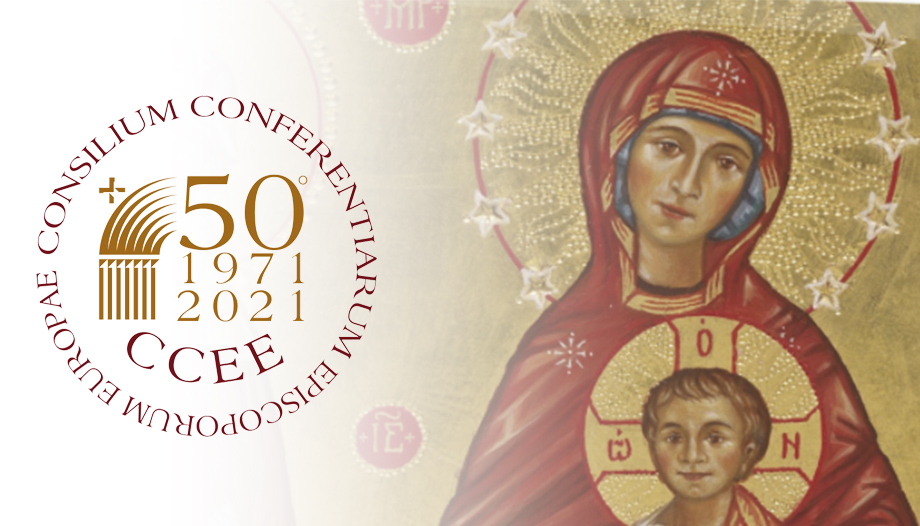The CCEE, which was born under the gaze of the Mother of Christ and of the Church, was born from the inspirations of the Second Vatican Council on the sense of episcopal collegiality, "cum et sub Petro", and also with the objective of strengthening evangelization efforts in the face of the great challenges unleashed by the cultural change of 1968.
Promoting the meeting of Episcopal Conferences, mutual knowledge, the exchange of experiences, a new proclamation of Christ, pastoral care and its future, appeared as necessary moments in the face of the pressure of new ways of thinking and acting. In this context, the CCEE was a sign of the Church's attention to the changing world. The upward gaze of the entire continent, Western and Eastern, was also a prophecy of what would happen in 1989 with the reunification of Europe: a unification not external, but inherent to its culture and spirituality.
The composition of the Council was extended over the years to the Presidents of the 33 Conferences Bishops not belonging to a specific Conference were also merged: the Archbishops of the Grand Duchy of Luxembourg, of the Principality of Monaco, of Cyprus of the Maronites and the Bishops of Chişinău in the Republic of Moldova, of the Apostolic Administration of Estonia and the Eparchy of Mukachevo.
Among its most important events are ten symposia, three ecumenical assemblies, five Catholic-Orthodox forums, fifty plenary assemblies (since 1995 with the presidents of episcopal conferences), meetings with secretaries general, press officers and spokespersons, meetings of commissions on emerging issues. Together with documents and communiqués, which also express the Church's cordial and attentive closeness to the beloved European continent.
Today's challenges are centered on dialogue among all religions as the basis for building a fraternal world, as well as an urgent commitment as custodians of Creation, as highlighted in the note made public on this anniversary. "Proclaiming the person of Christ means opening the heart of humanity and its intelligence to the whole of reality, as well as rediscovering the true face of each person, recognizing their dignity and their rights. It means announcing their future and thus giving meaning to the present," they state in this note in which they ask the faithful "in Christian communities to pray a special intention at Sunday Mass" for this advance of dialogue and European evangelization.









